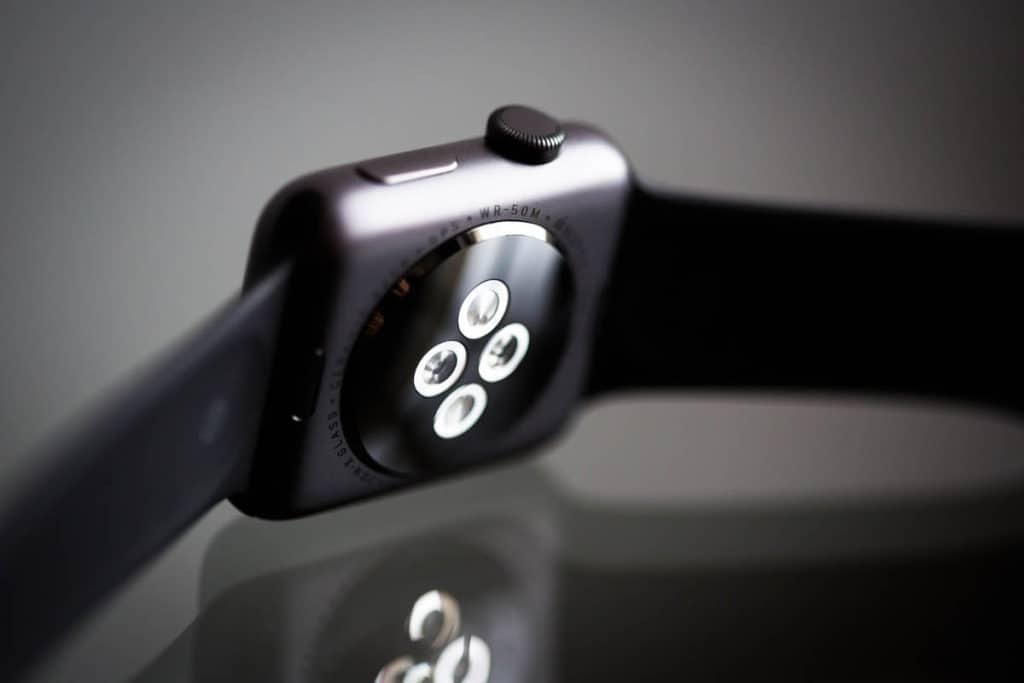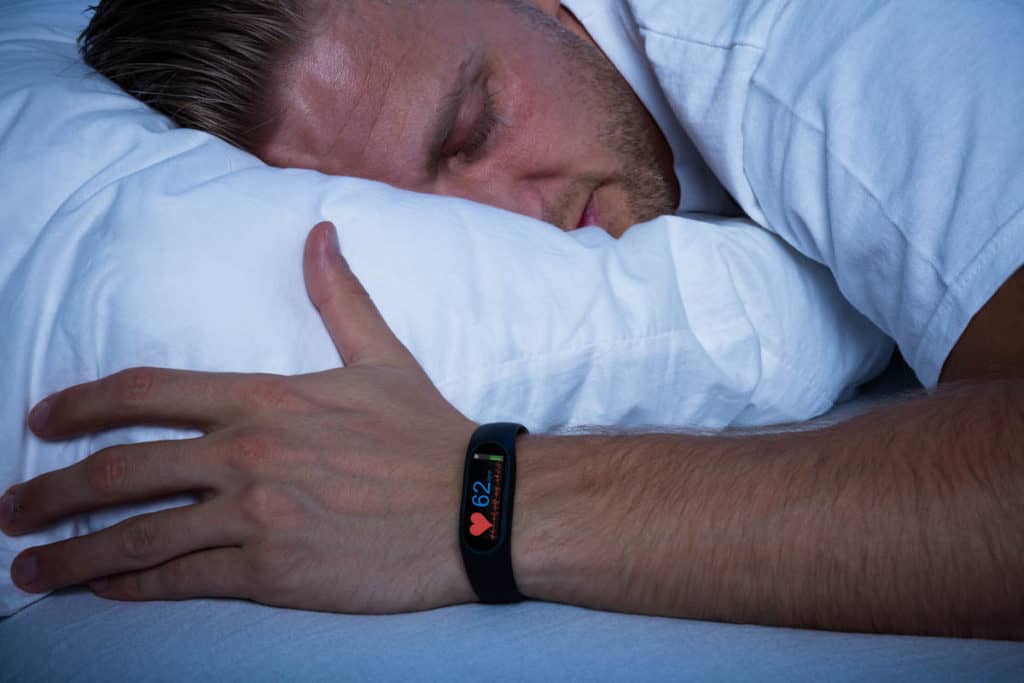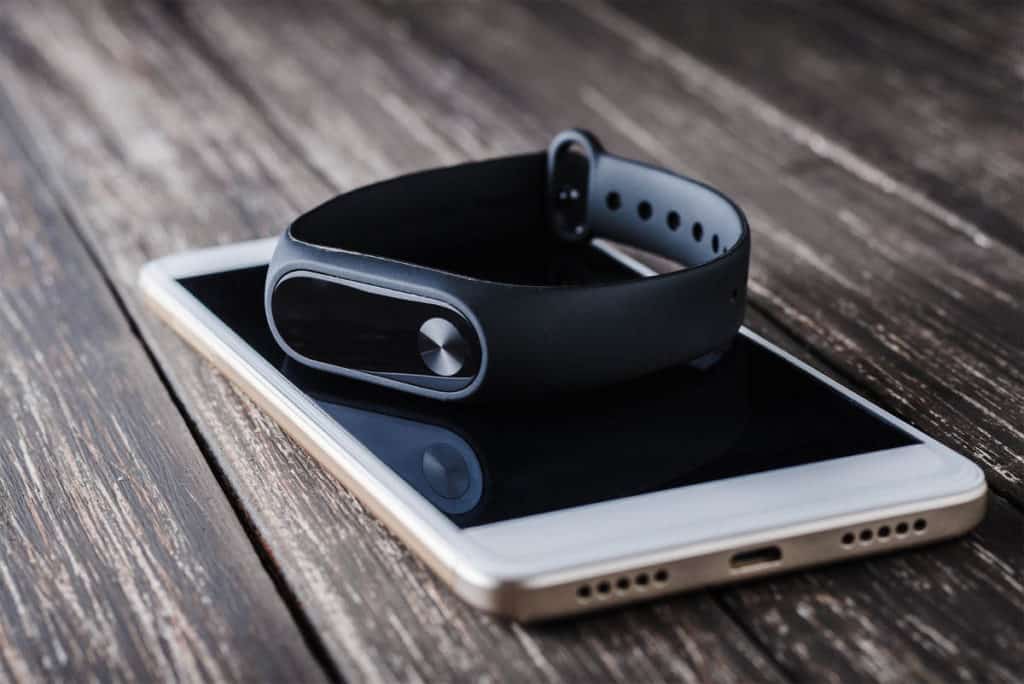A fitness tracker is a small, high-tech gadget worn around the wrist to keep track of your activity. It uses sensors to collect data from your body and your movements, then relays these metrics to a receiver. The receiver converts these metrics into information such as your step count, distance covered, calories burned, heart rate, sleep quality, and more.
Fitness trackers have become a staple in today’s exercise environment. They help us monitor our progress, give us real-time feedback, and empower us to set and achieve our fitness goals. They also give us a peek into our bodies’ activity levels, even while we sleep. Sleep trackers tell you how much rest you get on average, which speaks volumes about how healthy you are.
However, some remain skeptical about the benefits of fitness trackers. Their concerns stem from the fact that fitness tracking is not an exact science. The devices are known to be inaccurate in some measurements. They can be unreliable at times. Furthermore, not everyone has a use for information such as their step count or daily calories burned. So, fitness trackers serve people who set goals in specific exercises such as power walking and distance running. Weightlifters don’t benefit as much from gadgets.
Do these inconsistencies mean that fitness trackers are useless? Not necessarily. Nevertheless, it’s essential to know the pros and cons of fitness trackers to understand whether or not they help you.
Amazon has a wide range of fitness trackers to choose from.

Types of Sensors in a Fitness Tracker
Wearable fitness trackers rely on sensors to set parameters and collect data. These sensors determine the accuracy of the device. The more sensors a fitness tracker has, the more settings it can offer.
Gyroscope
Gyroscopic sensors measure rotation and orientation, which calculate angular velocity. In other words, gyroscopes are necessary to track three-dimensional motion. Most manufacturers equip their fitness trackers with a 3-axis gyroscope-accelerometer combo to track 3D movement and speed simultaneously.
Pedometer
A fitness tracker counts your footsteps using a pedometer. Combined with a distance tracker, a pedometer also monitors your walking or running speed. This feature is useful if you time your laps.
Most trackers recommend daily step counts to help you stay active while going through your day.

Temperature Sensor
This sensor is not a thermometer, but a sensor that tracks the body temperature. The hotter you get during a workout, the harder you must be working, according to the device.
Accelerometer
The accelerometer tracks body movement in all directions, helping to calculate velocity and positioning. This sensor is crucial for counting steps and distances covered.
Heart Rate Sensors
Fitness trackers use optical and bioimpedance sensors to track your heart rate. Your heart rate indicates your level of exertion, giving the tracker information about your activity. Heart rate monitors also help to measure sleep quality and quantity. If you are only looking for a heart rate monitor, check out my articles on how to choose a heart rate monitor and types of heart rate monitors.

Altimeter
Some fitness trackers have altimeters to measure altitude. This sensor is useful if you participate in mountain climbing or hiking. It also counts the number of stairs you climb.
How Useful Are Fitness Trackers? (Pros)
1. Fitness Trackers Give You an Idea of How Active You Are
You would need to cover five miles to make 10,000 steps in a day. That’s why the 10,000 steps a day fitness recommendation is unrealistic.
Yet, most of us think we can cover 5 miles a day easily with the amount of walking we do at work or home, so why hit the gym?
A fitness tracker will tell you that you barely cover half of that distance on a busy day, let alone every day. It grounds you in reality. That’s one huge reason to consider buying a fitness wearable.
Trackers give you real-time information about your level of activity. Even though most of the metrics they collect are estimates, they are far more accurate than any guesses we make about our fitness levels.
Therefore, if you want to know the truth about how active you are, then a fitness tracker is incredibly useful.
2. Fitness Trackers Tell You When to Get Moving
Being sedentary for too long can harm our health. Using the data we provide (such as age, height, weight, and fitness data), your tracker can tailor an activity schedule for you.
Most fitness trackers come equipped with this feature. After a period of inactivity, they will send alerts to get you moving, whether it’s only walking around, or going to the gym.
If you work from home, a fitness tracker keeps you active by letting you know when it’s time to do something. Without these periodic notifications, most of us would find it hard to start exercising.
3. Fitness Trackers Keep You Accountable
Fitness trackers integrate with third-party apps that collect data and compile it to form your activity profile. This data can be shared on social media or stored for future reference.
Any dips in your activity are visible through the app, so you start to feel responsible for your activity levels. When you can access your workout history over weeks or months, you get a clear idea of how much you get done, and this pushes you to want to do more.
If you miss a workout, the flat part of the graph tells you that. If you are very active in one day, you get rewarded by a busy chart. It is a lucrative reward system that satisfies your conscience with activity stats or pushes you to do more when you notice a dip in performance.
Without such technology, it is not easy to get accurate estimates of your level of activity. Therefore, you might be doing less without being aware of it.
4. Fitness Trackers Can be a Source of Motivation
When you link your tracker to a third-party mobile app or computer software, you can share your statistics with friends on social media.
The most effective form of motivation for most people is proving themselves to others. These third-party platforms motivate you to uphold your fitness routine, even if it is merely for the sake of sharing your performance with friends.
It’s not the noblest motivator, but the end justifies the means. Social media is home to fitness clubs and workout groups that allow people to post and compare stats while motivating each other to stay active.
Willpower is an unreliable source of motivation because it comes and goes. However, the ability to connect with other humans going through the same process as you can be a powerful incentive to keep working out, even when your body and mind disagree with you.
Therefore, a fitness tracker is a reliable source of motivation, especially if you find it hard to maintain your fitness routine without the occasional nudge.
5. Fitness Trackers Help You Track Your Progress
If you feel like you’ve been doing a lot of exercise without seeing any results, a fitness tracker may shed a bit more light on your situation. Sometimes, progress is not readily apparent to us, especially when it happens gradually.
A fitness tracker compiles your daily estimates into a comprehensive history, which will show you how active you’ve been, how many calories you burn on average, and how far you’ve come from where you started.
This information is a motivator for someone worried that they are not getting good enough results. Your daily results may not yield as much insight as to your weekly or monthly figures, which is why taking a step back to see the bigger picture can help.
By helping you keep track of your progress, fitness trackers push you towards achieving your goals. It’s easier to stay on track when you can track your weight loss journey from day one up until where you are. That’s a critical benefit of having a fitness tracker.

Why Fitness Trackers Can Let You Down (Cons)
1. Fitness Trackers Are Often Inaccurate
Accuracy is a big issue with some fitness trackers, especially if you purchase one from the cheaper end of the price list. While there are trackers that are good enough for professional athletes and trainers, not all of them excel when it comes to collecting data.
For example, very few trackers count the steps you take. Most of them come up with a close estimate. It could be because of the technology they pack, or the quality of the parts used by the manufacturer.
That means, most fitness trackers are prone to submitting wrong information. But this information is not entirely off the mark; it is an estimate of the actual figures.
While it can be useful if you’d like ballpark figures of how many steps you take or how much distance you cover in a day or week, these estimates may vary from the actual values.
Fitness trackers are excellent workout partners, but most of the figures they present are estimated. Unless you’re willing to splurge on high-tech equipment, it is not wise to rely on the data you get from your fitness tracker.
2. Fitness Trackers Are Expensive
A wearable tracker, such as a FitBit, may not cost an arm and a leg per se. However, a fitness tracker is an extra expense to you, no matter how much value it brings.
At best, low-end fitness trackers can only provide estimates. Most of this data is off by a few points. If you want more accuracy, you have to dig deeper into your pockets for a more precise tracker.
Many of these high-end trackers have three-figure price tags, so they are not cheap. Most people are okay with the cheaper ones, but they sacrifice a lot of accuracies to pay less for their trackers.
A decent fitness tracker may be an expense most of us are not ready to meet, which is why we compromise and go for cheaper, less accurate models. If you want the real deal, you might find that it is too rich for your pockets.
3. Fitness Trackers Are Not Always Helpful
Currently, most fitness trackers are valuable only to a small group of fitness enthusiasts: runners. Pedometers, GPS sensors, and accelerometers only measure velocity and distance. These metrics are useless to someone involved in strength training.
Think about it. Your fitness tracker may not be able to calculate the amount of weight you lift. It can only measure your heart rate and temperature to determine how hard your muscles are working.
It’s the same case for runners, too. Most fitness trackers don’t come with GPS tracking, so they can’t track distance or speed. A tracker like this is useless to a competitive runner, to whom such statistics are critical.
Here’s a word of advice to anyone who wants to buy a fitness tracker: buy one that will provide you with the data you need. You may have little use for the number of steps you take in a day or your average sleep time, but getting real-time heart rate data and estimates on the number of calories you burn can be useful if you’re looking to lose some weight.
Not all trackers have the same features, so to avoid ending up with an expensive bracelet, buy a tracker that tells you what you need to know.
4. Fitness Trackers Make You Fixate on Performance
Unfortunately, it is easy to get obsessed with the numbers at the expense of your performance. Focusing on the numerical data is a problem that wearable owners come to face down the road.
There’s nothing wrong with focusing on your data. This article from Forbes suggests that it may be the only thing that can stop you from chucking your fitness tracker in the bin. It provides insight, but more importantly, it keeps you motivated, so looking over it every so often does more good than harm.
But, this is often not the case. Your obsession with the numbers grows the longer you spend looking at your activity profile. When your progress dips, it can be very disheartening. It might even discourage you from continuing.
It is perfectly normal to look at your statistics just to know where you are. However, with most fitness trackers, it’s hard to know where to draw the line.

5. Fitness Trackers Turn Personal Fitness Into a Competition
While sharing your data with your social media friends may start as an attempt to seek motivation, you may end up being discouraged when you start comparing yourself to your friends.
After a hard week of training, the last thing anyone needs is to feel like they are not doing enough. Yet, sharing your fitness statistics on social media can have precisely that effect.
Everyone burns calories at a different rate. It depends on things like genetics, BMI, age, and so on. Therefore, expect that some will post better performances than you even if you have the same program.
Competition can be a source of motivation, but it can also derail your fitness goals when you start fixating on other people’s progress.
6. Some Recommendations Are Inaccurate
Most fitness trackers recommend taking at least 10,000 steps every day to stay fit. This figure differs from the recommendation issued by the International Journal of Obesity, which recommends 15,000 daily steps to reduce the risk of heart disease.
Combine this with the knowledge that most wearables don’t provide accurate data, and you start to realize that a fitness tracker may not be as useful as people paint it to be.
Furthermore, there’s the issue of not recognizing activities. Most fitness trackers do not detect gym workouts, especially those that involve weight training. Some don’t track cycling either, and for a step to count as one, it has to be quite substantial.
Are Fitness Trackers for Everyone?
The concept behind fitness trackers is marvelous. Having a device that quietly picks up your stats as you run, walk, or sleep is useful in gauging overall health and activity level. It would be an excellent gadget for everyone, except for a few weaknesses.
The first is accuracy. Wearables, by and large, are not capable of collecting pinpoint data, but instead, rely on estimates aggregated from a cluster of sensors. It helps to paint a picture, but the information it submits is by no means accurate.
The second is application. You may find a fitness tracker useful for your morning run, evening walk, or treadmill sessions. However, if you mostly lift weights or train using gym equipment like the elliptical machine, the chances are that you don’t need a fitness tracker.

That said, fitness trackers are excellent for keeping track of your health. Many of them monitor your sleep, as well. Some give accurate heart rate readings. Others have GPS sensors. You can even get fitness trackers for kids.
Fitness trackers are not for everyone, but for the majority, they can be useful. If you spend most of your time in an office chair, your fitness tracker can be a personal trainer. It will help you stay active with daily activity prompts, information about yourself, and a community of fitness enthusiasts like you to keep you motivated.
Before you buy one, however, assess your goals, and decide how a fitness tracker will help you achieve them.
Amazon has a wide range of fitness trackers to choose from.



What a great article. I enjoyed the research that you did on fitness trackers.
I use a version 2 of the fitbit watch, and use it for tracking of course my steps, my heart rate, and have several alarms on my watch that I find useful in teaching yoga classes (like a 10 minute warning type of thing).
I used to have it connected to my iphone for message and phone calls, but went just to tracking and alarms for the past few years.
Thank you for the great write up!
Beginners Yoga with Gail